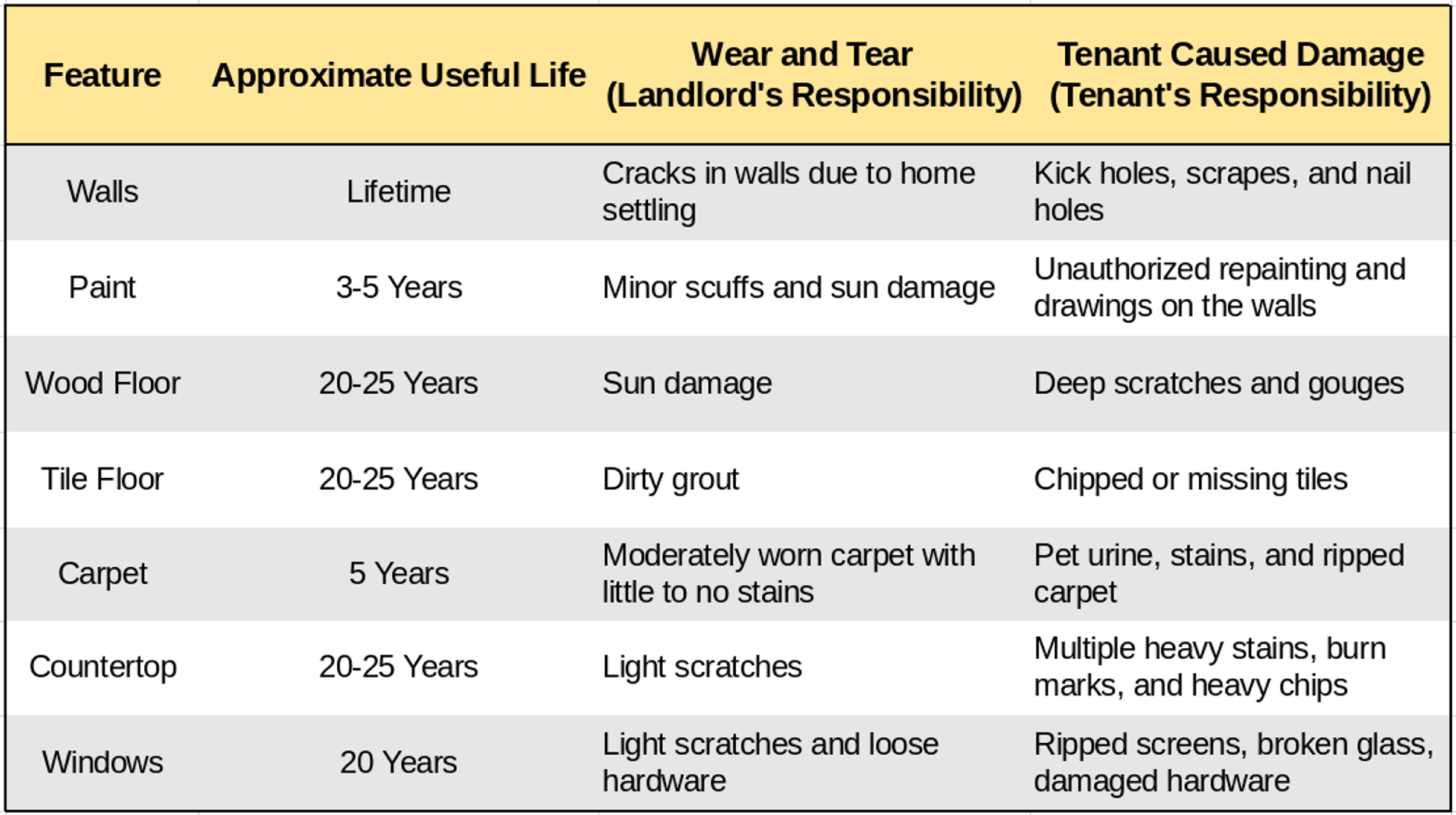The time has come for your tenant to move out. They've been great, but they have decided to leave the cool air of Southern California to pursue job opportunities elsewhere. Many landlords forget that the day a tenant moves out, a clock starts counting down. That "clock" is called the 21 day disposition, and failure to abide by it can result in heavy legal fines.
What is a 21 Day Disposition?
21 days is the legally allotted time that a California landlord has to return a security deposit. If a landlord fails to return the security deposit within that 21 day window, the tenant can take the landlord to court. In this situation, the tenant wins almost every single time.
By the 21st day after move out, the landlord must mail or deliver an itemized list of deductions from the security deposit. It must include receipts to prove the price of repairs. If the repair cannot be completed within 21 days, the landlord must provide a "good faith" estimate to the tenant for how much the repair will cost. Once the repair is completed, the landlord has 14 days to send the receipts for the repair.
What is a Security Deposit?
A security deposit is money paid up front by the tenant in order to cover any future property damage. That way, when the tenant moves out, the landlord is not left with a huge bill for something like a broken window.
In California, the legal limit for a security deposit is 2x the monthly rent for a non-furnished home. If the home is furnished, the security deposit limit is 3x the monthly rent.
When it comes time to give that security deposit back to the tenant, the landlord does have the legal authority to deduct any tenant caused property damage from the deposit. The landlord also has the legal power to deduct cleaning services that bring the home back to its pre-move in condition.
For more questions about what can be withheld from a security deposit, check out this article.
What About Wear and Tear?
A landlord does not have the authority to deduct general wear and tear from a security deposit. I have seen many landlords get in trouble because they do not understand the difference between tenant caused damage and general wear and tear.
It would be ridiculous to charge a tenant for 10-year old carpet because 10 years is outside of the "useful life" for carpet. As far as the law is concerned, general wear and tear is the expected deterioration of property assets. I made the table below to help distinguish between general wear and tear and actual tenant caused damage.

What About "Last Month's Rent"?
According to California Courts, a security deposit can only be used as "last month's rent" if the landlord allows it or has the lease setup that way. If a landlord has designated the security deposit as a "deposit", the tenant is not allowed to skip last month's rent. Ultimately, in most situations, a tenant cannot use the security deposit for last month's rent.
California law also requires month to month tenants to give a 30 day notice before vacating. If this notice is not given, the landlord can use the security deposit to pay for those 30 days of rent, even if the tenant is not occupying the property.
I Think My Landlord is Trying to Cheat Me
If you a tenant that feels entitled to more money than you were refunded, you have some options. First, write a letter to the landlord explaining your case and attempt to come to an agreement. These disputes are best handled outside of court if at all possible.
If the landlord continues to act in bad faith by illegally keeping part of your security deposit, the next step is to take your landlord to small claims court. Keep in mind, small claims court is for matters less than $10,000.
In California, the consequence of illegally withholding a security deposit is harsh. If the small claims judge sides in favor of the tenant, the landlord is usually mandated to return the security deposit in addition to 2x the disputed amount.
That's right, if $1000 is in dispute and the tenant wins in small claims court, the landlord will have to give the tenant a total of $3000.
How to Avoid Security Deposit Disputes
As a landlord, your best bet to avoiding this headache altogether is to take good inspection photos. Good photos can prove "tenant caused damage" in court. Without good before and after photos, a judge is likely to side with the tenant. If you would like more information about the inspections that Mesa Properties does, please feel free to check out this free resource.
As a tenant, you should try to get a copy of your landlord's inspection report. If your landlord does not have an adequate report system in place, you should make your own report.
A good report includes photos and or videos of the entire house. These photos need to cover everything from the exterior of the home to underneath the kitchen sink. If these photos are inadequate and do not cover the entire home, you will have a difficult time proving to a judge that you did not in fact break that window.
What Does Mesa Properties Do?
At Mesa Properties, we deal with 21 day dispositions every single day. We know exactly what counts as wear and tear, and what counts as "tenant caused damage." We have also spent years perfecting our inspection system so that it provides the best possible proof in front of a judge.
If you have any questions about how we can make your life easier, please feel free to give us a call. We'd love to talk to you more about our inspection process and how exactly we handle 21 day dispositions.
We are not lawyers and therefore, we do not provide legal advice. None of our employees or representatives are lawyers, and they also do not provide legal advice. The accuracy of this content is in no way warranted or guaranteed. Our website and services are not real life substitutes for actual lawyers. We recommend that you consult a lawyer for all legal advice.



